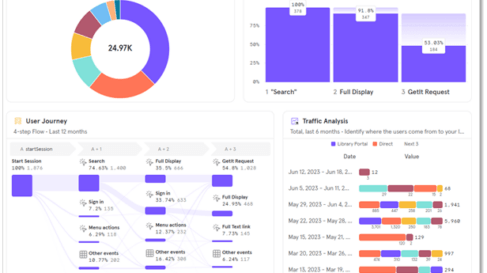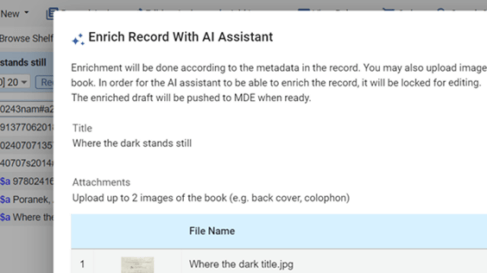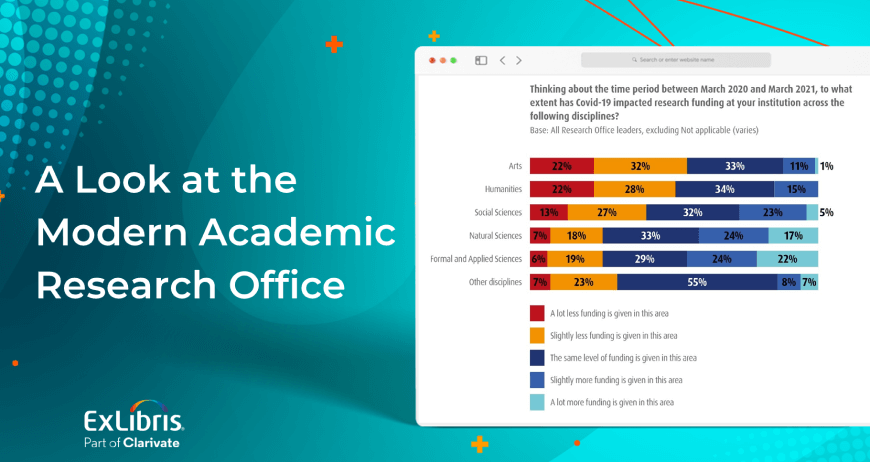This post was originally published on the ProQuest Blog
In 2015, ProQuest conducted a study on researchers’ use of news resources. This is the fourth post in a five-part series focused on the study results and use of news resources in research.
After looking at how users conduct research over a six-month period, we gathered a great deal of noteworthy data. When it comes to searching news content, full-text news articles published before 1980 are the most preferred content type. Researchers want to travel further back in time to explore what people thought, the current events of the day, and lifestyle and purchasing habits. In addition to full-text news articles, researchers were most interested in the front page/cover story of a newspaper, and news articles in context where product advertisements, entertainment listings, photos and images, and cartoons are shown alongside articles revealing more about the past. Reading first-hand accounts from the past and comparing them to today’s news provides researchers with fresh perspectives.
Historical newspapers are indispensable primary sources for research. As newspapers cover multiple disciplines, they are a great resource for the comparative analysis of political, economic, social, and cultural issues. Seventy-nine percent of researchers use news sources regularly to support their research, according to the latest ProQuest faculty users survey. Large news collections provide big data sets that enable researchers to study a topic over a significant period of time.
In some instances, newspapers offer the only source of information about people, speeches, activities, and property where documents and reports have been destroyed or lost through natural disasters, fires, and other forms of destruction.
While time travel a la Tardis is impossible in the real world, physical travel, though appealing for the adventurous, is not always possible. Online historical newspaper collections are the next best thing for searching newspapers from around the world, spanning centuries. A researcher’s time is maximized and discovery-optimized without having to travel far from home. With the added advantage of being able to locate news articles from international newspapers, researchers can easily gather multiple perspectives on global issues.
The popularity of historical news is not limited to academic libraries. Public libraries regularly help their patrons search and find local historical coverage. They also serve a variety of users – from students doing class assignments to freelance journalists and from independent family history researchers to local history enthusiasts. There are few resources that bring the past to life in the way that digital historical newspaper archives can and that offer researchers the vital first impressions gained from reading accounts of events written at the time they occurred.
The popularity of historical news is not limited to academic libraries. Public libraries regularly help their patrons search and find local historical coverage. They also serve a variety of users – from students doing class assignments to freelance journalists and from independent family history researchers to local history enthusiasts. There are few resources that bring the past to life in the way that digital historical newspaper archives can and that offer researchers the vital first impressions gained from reading accounts of events written at the time they occurred.
Source: ProQuest News user surveys, 2015
You might also be interested in

Pivot
Research
May 06, 2025 |
1 min read
Searching for Research Funding: A Look at the Data

Primo
Artificial Intelligence
Higher Education
Research
September 23, 2024 |
4 min read
Elevate User Engagement with Advanced Analytics: Ex Libris Primo Partners with Mixpanel

Artificial Intelligence
Higher Education
Research
September 19, 2024 |
1 min read
The Clarivate Pulse of the Library 2024 report is now available!
Great library experiences start with software
Download whitepaper

Alma
Artificial Intelligence
Higher Education
Open Platform
Research
August 21, 2024 |
4 min read
Artificial Intelligence Blog Series: Introducing the AI Metadata Assistant in the Alma Metadata Editor

Artificial Intelligence
Higher Education
Open Platform
Research
August 02, 2024 |
4 min read
Artificial Intelligence Blog Series: The Ex Libris Open Library Platform

Primo
Artificial Intelligence
Higher Education
Research
June 19, 2024 |
4 min read
Artificial Intelligence Blog Series: Meet Primo Research Assistant

Artificial Intelligence
Higher Education
Librarianship
Research
Teaching and Learning
April 06, 2024 |
2 min read
Ex Libris Welcomes Dr. Safiya Noble for an online talk about DEI, Technology and Libraries

Esploro
Research
February 10, 2022 |
8 min read
A Look at the Modern Academic Research Office

